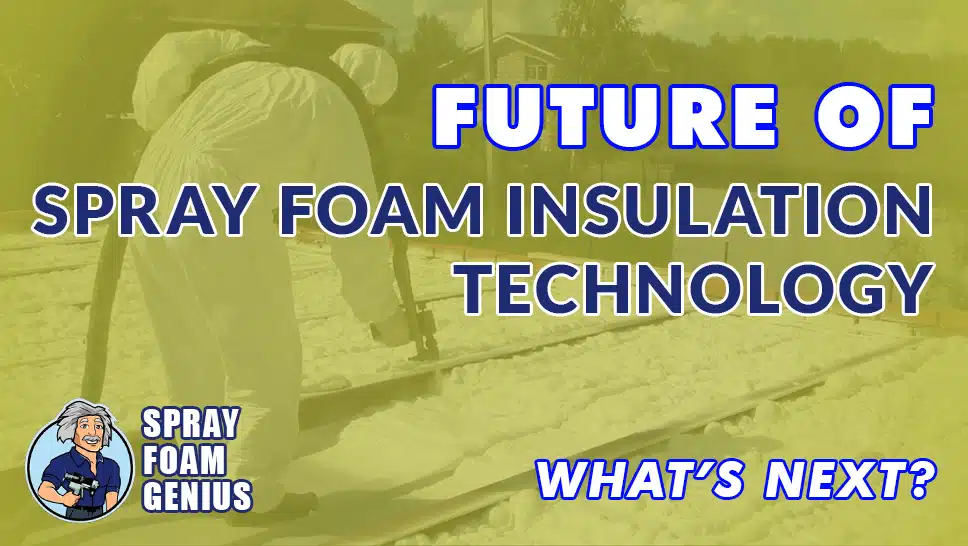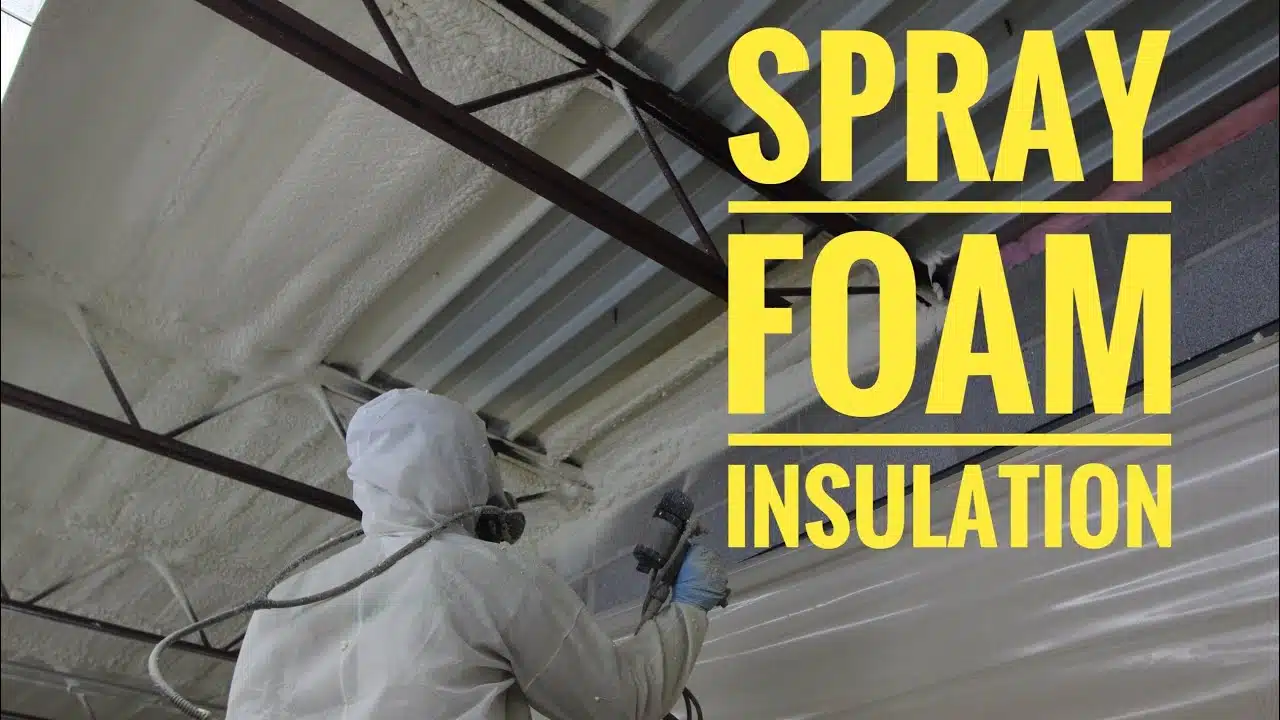
Spray foam insulation has long been celebrated for its superior thermal performance, energy efficiency, and versatility. As we look toward the future, the technology behind spray foam insulation continues to evolve, bringing new advancements and opportunities to both contractors and homeowners. In this comprehensive guide, we will explore the emerging trends, innovations, and future directions in spray foam insulation technology, providing valuable insights for spray foam contractors and industry professionals.
Introduction to Spray Foam Insulation Technology
Spray foam insulation is a highly effective method for improving energy efficiency in buildings. It is applied as a liquid that expands into a foam, filling gaps, cracks, and voids to create an airtight seal. This process helps to prevent air leaks and improves the overall thermal performance of a building.
Traditionally, spray foam insulation has been available in two main types:
- Open-Cell Spray Foam: Lightweight and flexible, this type is used primarily for interior applications. It offers good soundproofing and is cost-effective for insulating walls and ceilings.
- Closed-Cell Spray Foam: Denser and more rigid, closed-cell foam is ideal for exterior applications and areas where moisture resistance is essential. It provides a higher R-value per inch and acts as a vapor barrier.
As technology progresses, both types of spray foam are benefiting from innovations that enhance their performance, sustainability, and ease of application.
Innovations in Spray Foam Insulation Technology
Advanced Formulations
Recent advancements in spray foam formulations have led to improved performance characteristics and environmental benefits. New formulations are being developed to:
- Increase R-Value: Researchers are continually working to enhance the thermal resistance of spray foam, allowing for better insulation with less material. This means more efficient energy use and reduced heating and cooling costs.
- Improve Environmental Impact: Modern spray foam products are being designed with lower Global Warming Potential (GWP) and reduced ozone depletion potential. This shift towards more eco-friendly options aligns with growing environmental regulations and consumer demand for sustainable building materials.
- Enhanced Fire Resistance: Fire-resistant additives are being incorporated into spray foam formulations to improve safety. These additives help slow the spread of flames and reduce smoke production, contributing to overall fire safety in buildings.
Smart Insulation Systems
The integration of technology into spray foam insulation is opening up new possibilities for smart building systems. These innovations include:
- Sensors and IoT Integration: Smart insulation systems can incorporate sensors that monitor temperature, humidity, and insulation performance. This data can be used to optimize heating and cooling systems, improve energy efficiency, and provide real-time feedback on the condition of the insulation.
- Automated Control Systems: Advances in automation are enabling the development of control systems that adjust insulation properties based on environmental conditions. For example, adaptive insulation systems can respond to temperature changes by adjusting their thermal resistance, ensuring optimal comfort and efficiency.
Improved Application Techniques
Advancements in application techniques are making spray foam insulation more efficient and effective:
- Robotic Application: The use of robotics in spray foam application is on the rise. Robotic systems can apply foam with precision and consistency, reducing labor costs and improving the quality of the installation. This technology is particularly useful for large-scale projects and hard-to-reach areas.
- Enhanced Equipment: New equipment designs are making the spraying process more user-friendly and efficient. Innovations such as improved spray guns, temperature control systems, and better mixing technologies contribute to more consistent results and easier application.
Future Trends in Spray Foam Insulation
Sustainability and Green Building
Sustainability is a major focus for the future of spray foam insulation technology. As green building practices become more prevalent, spray foam manufacturers are responding with:
- Bio-Based Materials: The development of bio-based spray foam products made from renewable resources is gaining traction. These materials reduce reliance on petrochemicals and offer a more sustainable option for insulation.
- Recyclable and Reusable Foam: Research is underway to create spray foam products that can be recycled or repurposed at the end of their life cycle. This approach aligns with the circular economy model and helps reduce waste.
- Energy-Efficient Solutions: Future spray foam products are expected to integrate advanced energy-saving technologies, such as reflective coatings and advanced thermal barriers, to further enhance their performance and environmental benefits.
Regulatory Changes and Standards
As the building industry evolves, regulatory changes and new standards will influence spray foam insulation technology:
- Updated Building Codes: New building codes and energy efficiency standards are expected to drive innovations in spray foam insulation. Contractors will need to stay informed about these changes to ensure compliance and take advantage of new opportunities.
- Certification Programs: Certification programs for spray foam products and installation practices will become more prevalent. These programs will help ensure that products meet high standards for performance, safety, and environmental impact.
Market Expansion and Opportunities
The spray foam insulation market is poised for growth, with new opportunities emerging in various sectors:
- Residential and Commercial Applications: The demand for spray foam insulation is increasing in both residential and commercial markets. Contractors can explore new market segments, such as energy-efficient retrofits and green building projects, to expand their business.
- International Markets: As spray foam technology gains recognition globally, opportunities for contractors to enter international markets are expanding. Understanding regional regulations and market needs will be crucial for success in these new territories.
Challenges and Considerations
While the future of spray foam insulation technology is promising, there are challenges and considerations to keep in mind:
Cost and Affordability
The cost of advanced spray foam products and equipment can be a barrier for some contractors and homeowners. Balancing cost with performance and sustainability will be a key consideration for the industry moving forward.
Training and Education
As new technologies and techniques emerge, ongoing training and education will be essential for contractors. Staying current with industry developments and best practices will ensure that contractors can offer the latest solutions to their clients.
Regulatory Compliance
Adhering to evolving regulations and standards will be crucial for contractors and manufacturers. Keeping up with changes in building codes, environmental regulations, and certification requirements will be necessary to remain competitive and compliant.
Embracing the Future of Spray Foam Insulation

The future of spray foam insulation technology is bright, with numerous innovations and advancements on the horizon. From improved formulations and smart insulation systems to sustainability and market expansion, the industry is poised for significant growth and transformation.
For spray foam contractors, staying informed about these trends and embracing new technologies will be essential for maintaining a competitive edge. By investing in training, adopting innovative practices, and focusing on sustainability, contractors can position themselves for success in the evolving market.
At Spray Foam Genius Marketing, we specialize in helping spray foam contractors navigate the industry and grow their businesses. Whether you need assistance with SEO, lead generation, or reputation management, our team is here to support your success. For more information on how we can help you stay ahead in the spray foam insulation industry, contact us today at Call us at 877-840-FOAM for USA and 844-741-FOAM for Canada, visit our website at sprayfoamgeniusmarketing.com, or email us at [email protected].
Let’s embrace the future of spray foam insulation together and drive your business to new heights.
- How to Use Pinterest to Market Your Spray Foam Insulation Services - December 27, 2023
- How to Use LinkedIn to Grow Your Spray Foam Insulation Business - December 23, 2023
- How to Use Instagram to Showcase Your Spray Foam Insulation Projects - December 16, 2023

